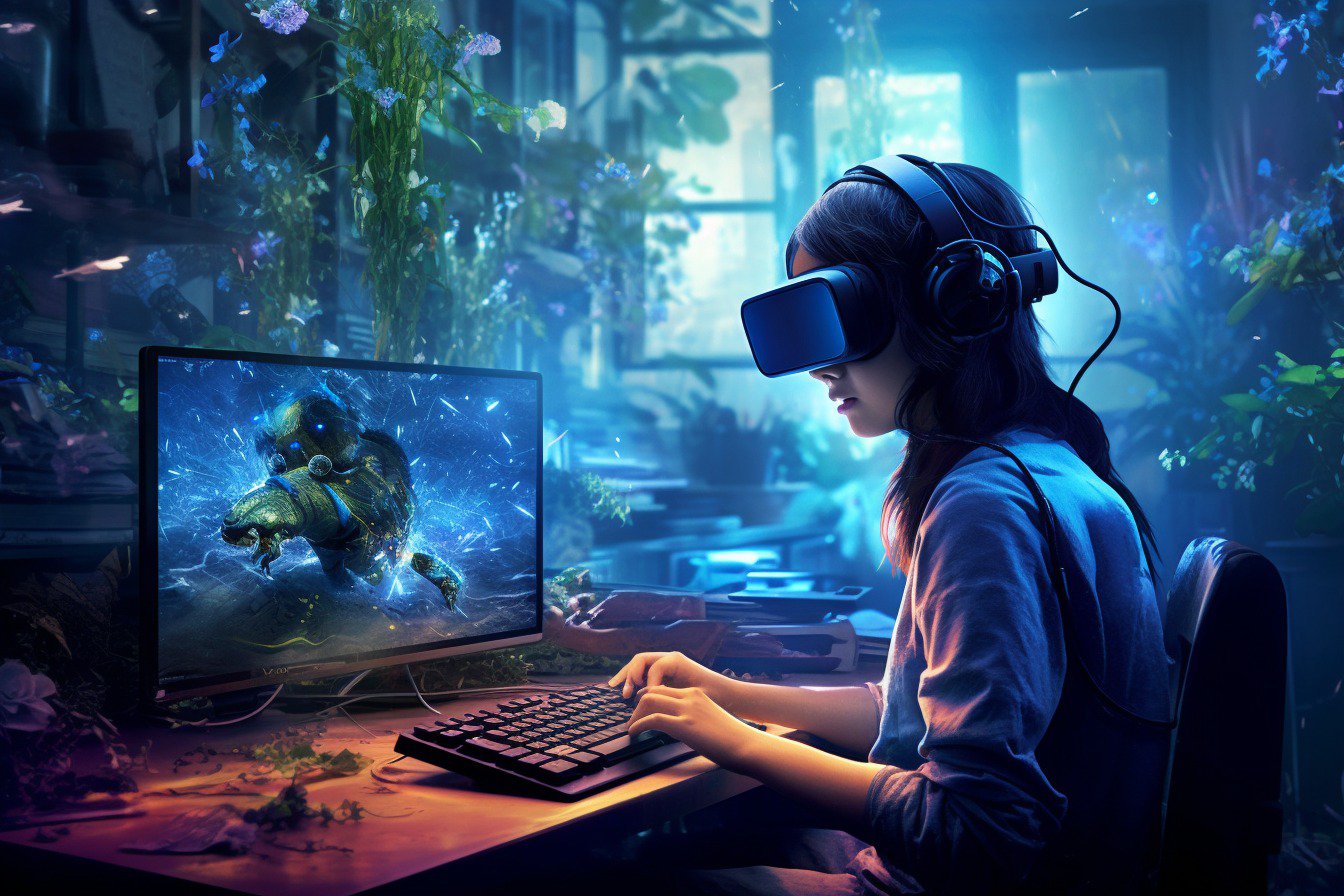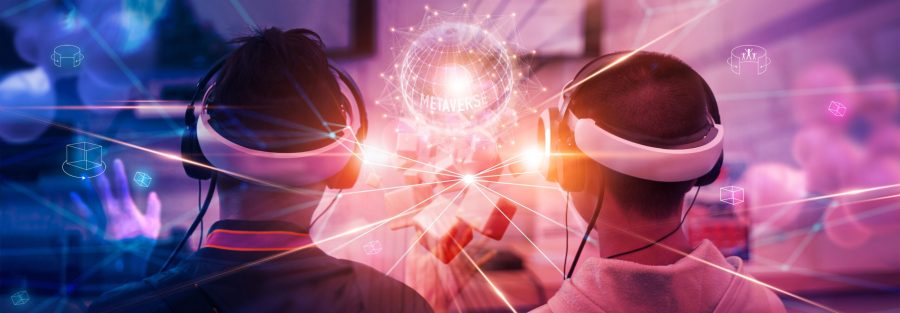Welcome to the era of gaming where AI is revolutionizing multiplayer experiences like never before! Gone are the days when gamers faced predictable foes and static environments. With AI taking center stage, multiplayer gaming has transformed into a dynamic, personalized adventure that keeps players on their toes at every turn. We will explore how AI is enhancing the world of multiplayer gaming, making it more immersive, realistic, and challenging than ever. So grab your controllers and get ready for an exhilarating journey into the future of gaming!
The Evolution of Multiplayer Gaming
Gone are the days when gamers were limited to playing against computer-controlled opponents. The evolution of multiplayer gaming has opened up a whole new world of excitement and competition. From local split-screen battles to massive online arenas, players can now connect with friends and foes from all corners of the globe.
In the early years, multiplayer gaming was primarily limited to LAN parties or connecting consoles together for some friendly competition. However, advancements in technology quickly changed the landscape. With the rise of high-speed internet connections, online multiplayer became more accessible and popular.
This shift towards online play brought about a revolution in gameplay mechanics and social interaction. Players could now team up with friends or join forces with strangers in epic cooperative missions or intense player-versus-player battles. The sense of community grew as players formed clans, guilds, and alliances to conquer virtual worlds together.
As time progressed, developers began exploring new ways to enhance multiplayer experiences even further. They introduced matchmaking systems that paired players based on skill level and created ranking systems to foster healthy competition.
With the introduction of AI into multiplayer games, another layer of immersion has been added. AI-powered bots can fill empty slots in teams or provide challenging opponents when human players are scarce. These intelligent algorithms adapt their behavior based on player actions, making each match feel dynamic and unpredictable.

How AI is Enhancing Multiplayer Gaming Experiences
AI has revolutionized the world of gaming, bringing new possibilities and enhancing multiplayer experiences like never before. With AI technology at its core, multiplayer games have become more immersive, adaptive, and personalized for players.
One way in which AI is enhancing multiplayer gaming experiences is through personalization. By analyzing player behavior and preferences, AI algorithms can create unique gameplay experiences tailored to each individual. Whether it’s adjusting difficulty levels or offering custom challenges based on a player’s skill level or playstyle, AI brings a whole new level of personalization to multiplayer games.
AI enables games to adapt dynamically during gameplay. With machine learning algorithms constantly analyzing data from ongoing matches, the game environment can respond in real-time to ensure a balanced and challenging experience for all players involved. This adaptability ensures that no two matches are the same and keeps players engaged throughout their gaming sessions.
AI also enhances game performance and realism. Through sophisticated graphics rendering techniques powered by AI algorithms such as neural networks, multiplayer games now boast stunning visual effects that rival those found in Hollywood movies. From realistic physics simulations to lifelike character animations, these advancements immerse players into virtual worlds like never before.
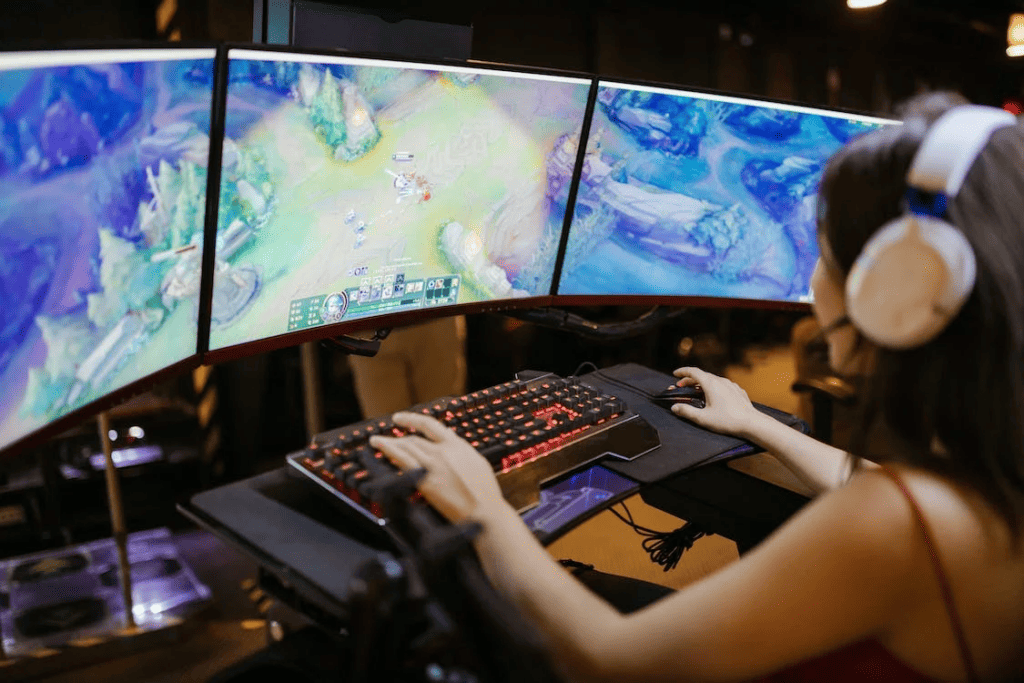
Personalization and Adaptability
One of the most exciting aspects of AI in multiplayer gaming is its ability to personalize the experience for each player. Gone are the days of generic characters and one-size-fits-all gameplay. With AI, games can now tailor themselves to suit individual players’ preferences and play styles.
AI algorithms analyze a player’s behavior, including their choices, strategies, and skill level, to create a personalized gaming experience. Whether you prefer fast-paced action or strategic thinking, AI can adapt the game mechanics accordingly to provide you with a challenge that matches your skill level.
AI can also adjust difficulty levels on-the-fly based on how well you’re performing. If you’re breezing through levels effortlessly, the game can ramp up the difficulty to keep things interesting and challenging. On the other hand, if you’re struggling with certain aspects of gameplay, AI can offer hints or even tweak elements within the game environment to help you progress.
This personalization not only enhances engagement but also allows players to feel more connected with their virtual worlds. It creates a sense of ownership over their gaming experiences as they see tangible evidence that their decisions matter and impact the outcome.
Adaptive AI ensures that multiplayer experiences remain fair and balanced for all players involved. By analyzing data from multiple gamers simultaneously, AI algorithms can make real-time adjustments to ensure everyone has an equal chance at success.
Personalization and adaptability are key benefits brought about by incorporating AI into multiplayer games. With tailored experiences based on individual preferences and adaptable difficulty levels that cater to different skill sets, players can fully immerse themselves in dynamic worlds designed just for them.
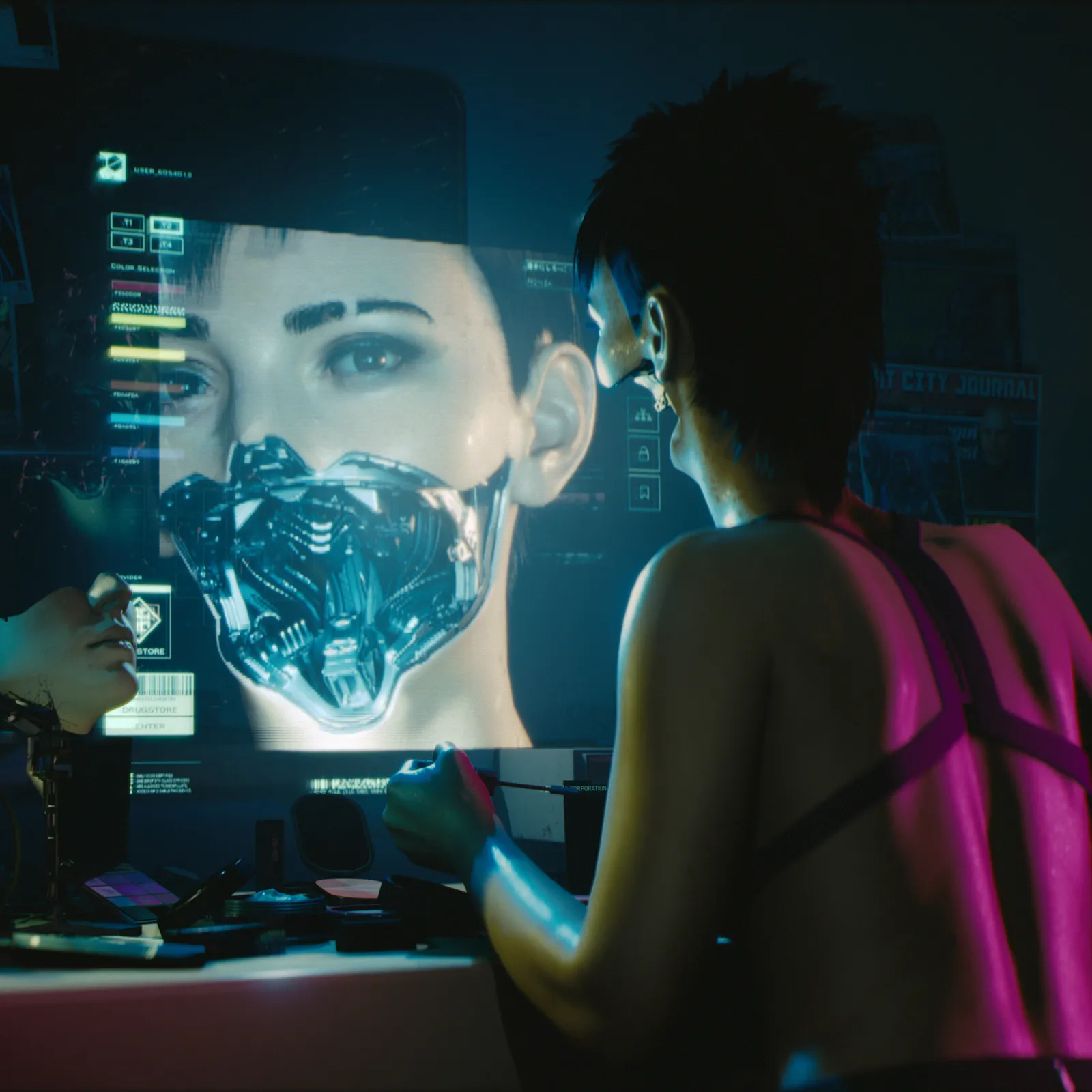
Improved Game Performance and Realism
One of the most exciting aspects of AI in multiplayer gaming is its ability to enhance game performance and bring a new level of realism to the virtual world. With AI algorithms constantly analyzing player behavior, game developers can fine-tune their games to provide smoother gameplay experiences.
AI-powered systems can optimize graphics rendering, ensuring that players enjoy stunning visuals without compromising on performance. By dynamically adjusting graphics settings based on each player’s hardware capabilities, AI helps deliver an optimal balance between graphical fidelity and smooth frame rates.
AI can contribute to creating more realistic simulations within games. Through machine learning techniques, NPCs can exhibit more human-like behaviors and reactions, making interactions with them feel more immersive. This adds depth and complexity to the gaming experience as players engage with characters that respond intelligently to their actions.
AI algorithms enable adaptive difficulty levels in multiplayer games. This means that the artificial intelligence controlling opponents or enemies learns from players’ strategies and adjusts its own tactics accordingly. As a result, every playthrough becomes unique and challenging – no two battles are ever quite the same!
With improved game performance thanks to AI-driven optimizations combined with enhanced realism through intelligent NPC behaviors and adaptive difficulty levels, multiplayer gaming experiences have reached new heights of excitement and immersion for gamers worldwide!

Challenges and Limitations of AI in Gaming
While AI has undoubtedly made significant strides in enhancing multiplayer gaming experiences, it is not without its challenges and limitations. One of the primary challenges is developing AI that can effectively mimic human behavior and decision-making processes. While AI algorithms have become increasingly sophisticated, they still struggle to replicate the complexity and nuance of human intelligence.
Another challenge lies in striking a balance between challenging gameplay and fairness for all players. If an AI opponent becomes too difficult to defeat, it may discourage players from continuing to engage with the game. On the other hand, if the AI opponents are too easy to beat, it can lead to boredom and repetition.
Implementing AI systems into existing games can be a time-consuming process requiring significant resources. Game developers must carefully integrate AI algorithms into game mechanics without disrupting or compromising other aspects of gameplay.
The future looks promising as technology continues to evolve rapidly within this realm – paving new ways for gamers to immerse themselves further into captivating virtual worlds!

Future Possibilities and Potential Impact on the Industry
The future of AI in multiplayer gaming holds immense potential for transforming the industry in ways we can only imagine. As technology continues to advance, so will the capabilities of AI systems, offering new possibilities for enhancing gameplay experiences.
One area where AI is expected to have a significant impact is in creating more immersive and realistic virtual worlds. Imagine playing a game where AI-powered NPCs behave just like real people, with their own emotions and personalities. This level of realism could revolutionize storytelling in games and make them feel more alive than ever before.
Another exciting possibility is the use of AI algorithms to generate procedurally generated content that adapts to players’ preferences and playstyles. By analyzing player behavior and feedback, AI can create dynamic game environments that provide unique challenges tailored specifically to each individual player.
It’s important to note that there are still several challenges and limitations that need to be addressed before these future possibilities become a reality. Ethical considerations surrounding data privacy, algorithm bias, and responsible use of AI must be carefully managed.
The future impact of AI on multiplayer gaming is vast. It has the potential not only to enhance immersion but also revolutionize how games are created, played, and experienced by individuals across different skill levels. As technology advances further and developers continue pushing boundaries, we can expect remarkable innovations driven by artificial intelligence within this ever-evolving industry.
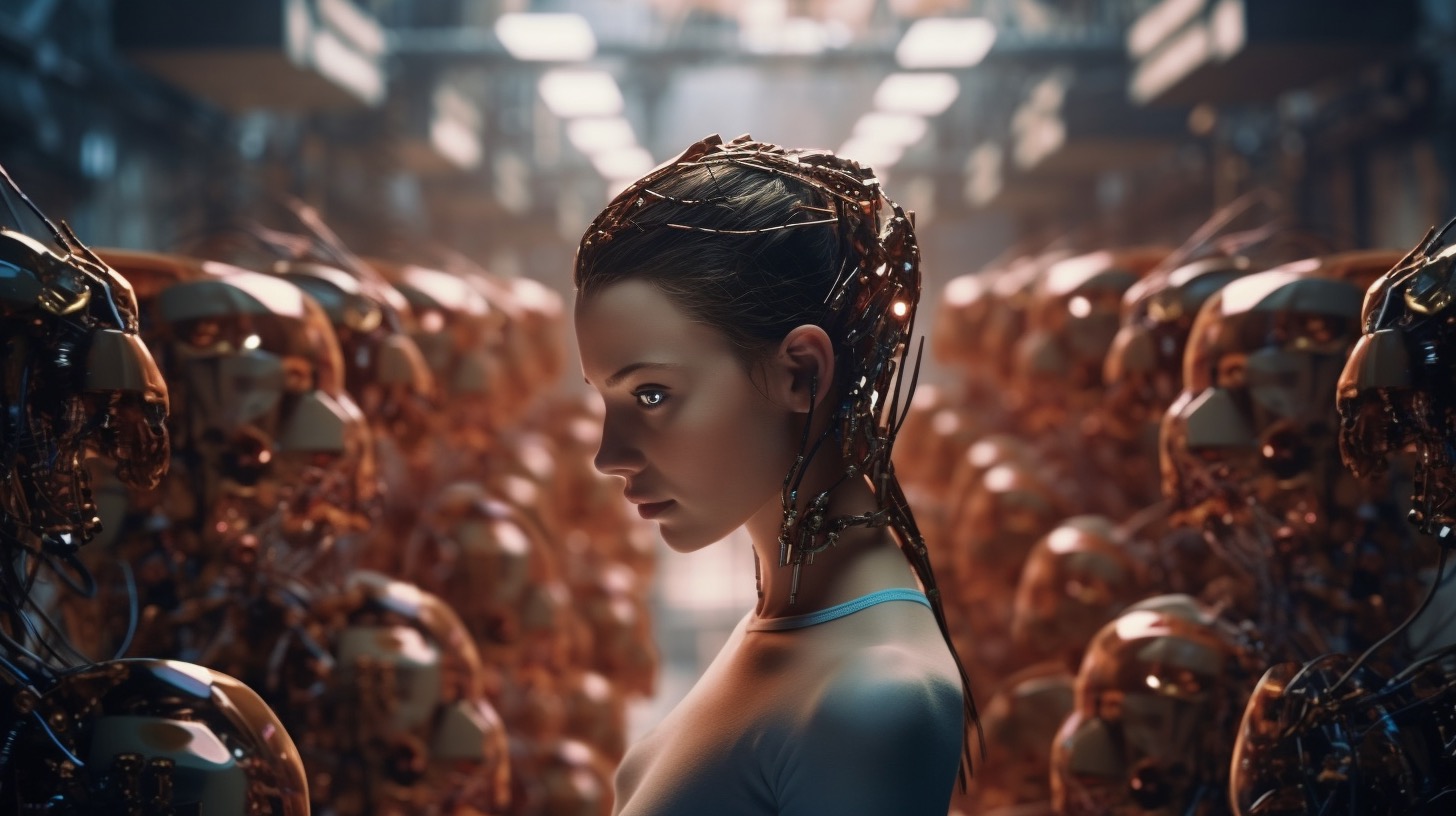
Conclusion
As we have explored in this article, AI is making a significant impact on enhancing multiplayer gaming experiences. From personalization and adaptability to improved game performance and realism, AI technology is revolutionizing the way we play and interact in virtual worlds.
With AI-powered systems constantly learning and adapting to players’ behaviors, preferences, and skill levels, multiplayer games are becoming more immersive and engaging than ever before. The ability for AI to dynamically adjust gameplay elements such as difficulty level or matchmaking based on individual player data ensures that every gaming session is tailored to provide a challenging yet enjoyable experience.
Looking ahead, the future possibilities for incorporating AI into multiplayer gaming seem promising. With advancements like natural language processing enabling more realistic interactions with non-player characters or sophisticated adaptive enemy behavior patterns that mimic human-like decision-making processes – the potential for creating truly lifelike virtual worlds is within reach.
As technology continues to evolve at an unprecedented pace, so does our ability to enhance multiplayer gaming experiences through artificial intelligence. By leveraging its power for personalization, adaptability, improved performance,and realism; developers are opening up new realms of possibility for immersive entertainment. As gamers continue their quest for unforgettable adventures within digital landscapes,AI will undoubtedly play a central role in shaping the future of interactive entertainment.
